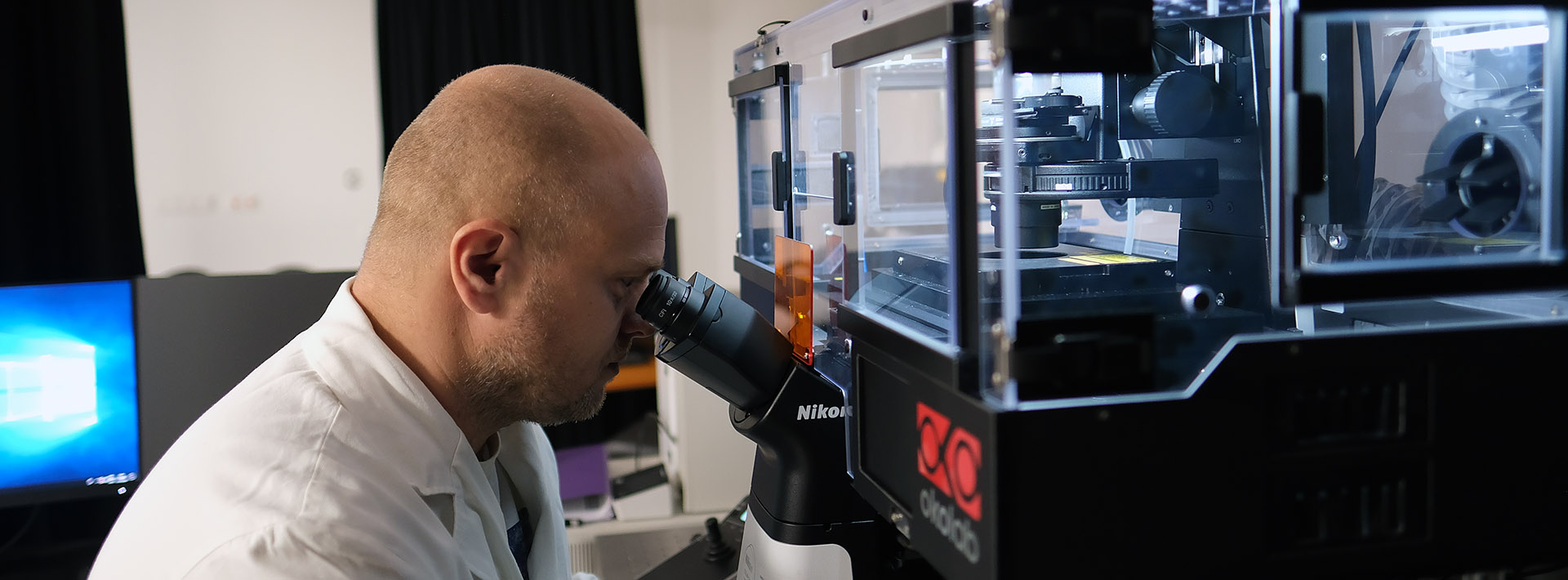Data
Official data in SubjectManager for the following academic year: 2024-2025
Course director
-
Zelena Dóra Tímea
professor,
Institute of Physiology -
Number of hours/semester
lectures: 26 hours
practices: 0 hours
seminars: 0 hours
total of: 26 hours
Subject data
- Code of subject: OXFPPV-z-T
- 2 kredit
- Dentistry
- Optional modul
- autumn
OZAAA2-T finished , OZAEF2-T finished
Course headcount limitations
min. 5 – max. 60
Topic
Nowadays, psychiatric illnesses are becoming more common, partly due to increasing stress (e.g. anxiety, depression) and partly due to an aging society (eg dementia). Unfortunately, their therapy is not solved. A better understanding of the underlying mechanisms can bring us closer to discovering new drug targets. To do this, as well as testing new drugs, appropriate animal models and tests are required. Students will be able to get acquainted with the classification of psychiatric diseases, their main symptoms, and get a comprehensive picture of possible preclinical models and available as well as new methods under development. Special focus will be given to new research areas such as viral vectors, opto- and pharmacogenetics, epigenetics and "big data" and we will present their potential role in diagnosis and therapy.
Lectures
- 1. Introduction: Categorization of psychiatric diseases, validity of animal models - Zelena Dóra Tímea
- 2. Introduction: Categorization of psychiatric diseases, validity of animal models - Zelena Dóra Tímea
- 3. The role of motion in preclinical studies, the Parkinson and Huntington's disease, viral vectors in therapy - Zelena Dóra Tímea
- 4. The role of motion in preclinical studies, the Parkinson and Huntington's disease, viral vectors in therapy - Zelena Dóra Tímea
- 5. Circadian rhythm, sleep-wakefulness regulation, EEG, major regulators and role in the development and research of psychiatric diseases - Zelena Dóra Tímea
- 6. Circadian rhythm, sleep-wakefulness regulation, EEG, major regulators and role in the development and research of psychiatric diseases - Zelena Dóra Tímea
- 7. Schizophrenia and autism - Zelena Dóra Tímea
- 8. Schizophrenia and autism - Zelena Dóra Tímea
- 9. Anxiety and posttraumatic stress disorder - Zelena Dóra Tímea
- 10. Anxiety and posttraumatic stress disorder - Zelena Dóra Tímea
- 11. Mania and depression: Can it be positive? - Zelena Dóra Tímea
- 12. Mania and depression: Can it be positive? - Zelena Dóra Tímea
- 13. Learning and memory, from elementary processes till complex tests - Zelena Dóra Tímea
- 14. Learning and memory, from elementary processes till complex tests - Zelena Dóra Tímea
- 15. Dementia, Alzheimer's Disease, an important problem of our aging society, "big data" data collection (proteomica, lipidomica, etc.) and possibilities their usefullness in psychiatry - Zelena Dóra Tímea
- 16. Dementia, Alzheimer's Disease, an important problem of our aging society, "big data" data collection (proteomica, lipidomica, etc.) and possibilities their usefullness in psychiatry - Zelena Dóra Tímea
- 17. Social behavior, friendship and aggression in animals and sick people from mechanisms to therapeutic options. Opto- and pharmacogenetic methods in research. - Zelena Dóra Tímea
- 18. Social behavior, friendship and aggression in animals and sick people from mechanisms to therapeutic options. Opto- and pharmacogenetic methods in research. - Zelena Dóra Tímea
- 19. Drugs and addiction. Everyone is addicted? - Zelena Dóra Tímea
- 20. Drugs and addiction. Everyone is addicted? - Zelena Dóra Tímea
- 21. The relationship of psychiatric diseases with metabolism, the brain-gut axis and the vagus in the development and therapy of diseases - Zelena Dóra Tímea
- 22. The relationship of psychiatric diseases with metabolism, the brain-gut axis and the vagus in the development and therapy of diseases - Zelena Dóra Tímea
- 23. Analytic methods for behavioural examinations - Zelena Dóra Tímea
- 24. Analytic methods for behavioural examinations - Zelena Dóra Tímea
- 25. Examination - Zelena Dóra Tímea
- 26. Examination - Zelena Dóra Tímea
Practices
Seminars
Reading material
Obligatory literature
Literature developed by the Department
Hand-outs will be given.
Notes
Recommended literature
Conditions for acceptance of the semester
-
Mid-term exams
At the end of the course, students write a written test.
Making up for missed classes
Make-up classes are possible if needed upon consultation.
Exam topics/questions
Will be anounced during the semester.
